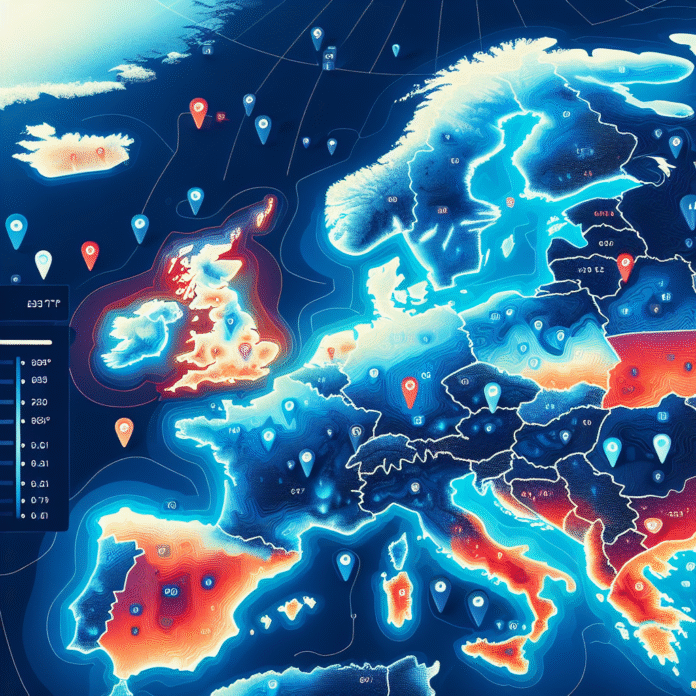Monitoring Rising Temperatures in Europe
Sure! Here’s a rewritten version of the article with additional relevant information, using HTML tags for headings:
“`html
Tracking Heat Across Europe
As the summer heat intensifies, Europe is grappling with record-high temperatures that have significant implications for public health, agriculture, and energy consumption. Recent data indicates that several regions are experiencing unusual weather patterns, leading to concerns about the long-term impact of climate change.
Rising Temperatures and Their Impact
This summer, countries such as Spain, Italy, and Greece have recorded temperatures soaring above 40 degrees Celsius (104 degrees Fahrenheit). These extreme conditions have not only strained energy systems due to increased demand for air conditioning but have also heightened the risk of wildfires in drought-stricken areas. The Mediterranean region, in particular, is facing an alarming trend of prolonged heatwaves that are becoming more frequent and severe.
Public Health Concerns
Health officials are sounding the alarm as heat-related illnesses rise. Vulnerable populations, including the elderly and those with pre-existing health conditions, are at heightened risk. Hospitals in major cities are reporting an increase in admissions due to heatstroke and dehydration. Governments are urged to implement heat action plans, which include providing cooling centers and disseminating information on staying safe during extreme heat.
Agricultural Impacts
The agricultural sector is also feeling the strain. Farmers are facing challenges with crop yields as extreme heat affects soil moisture levels and plant health. Key crops such as wheat, olives, and grapes are particularly vulnerable, leading to concerns about food security and rising prices. In response, some farmers are adopting innovative practices, such as drought-resistant crops and improved irrigation techniques, to mitigate the effects of climate change.
Energy Demand and Sustainability
Energy demand in Europe has surged, with utilities struggling to keep up. The increased use of air conditioning and cooling systems is pushing electricity grids to their limits. To combat this, countries are investing in renewable energy sources like solar and wind power to provide sustainable solutions. Governments are also encouraging energy conservation measures among citizens to reduce peak demand, especially during heatwaves.
Looking Ahead
As the climate crisis continues to unfold, experts emphasize the importance of taking action to address the underlying issues contributing to extreme weather events. This includes reducing greenhouse gas emissions, investing in climate resilience strategies, and fostering international cooperation to combat climate change on a global scale.
In summary, the current heatwave across Europe serves as a stark reminder of the urgent need for collective action to address the impacts of climate change. While immediate measures can mitigate the effects, long-term strategies are essential to ensure a sustainable future for the continent.
“`
Feel free to modify any part of the content or ask for further changes!


